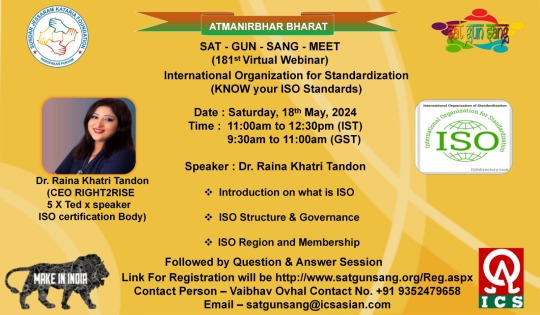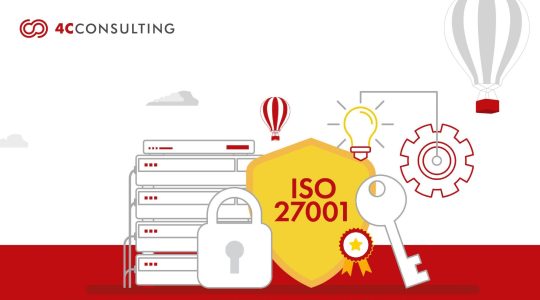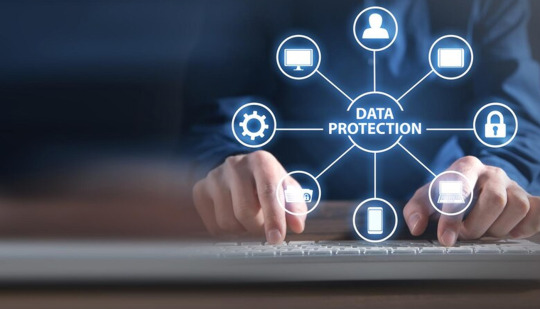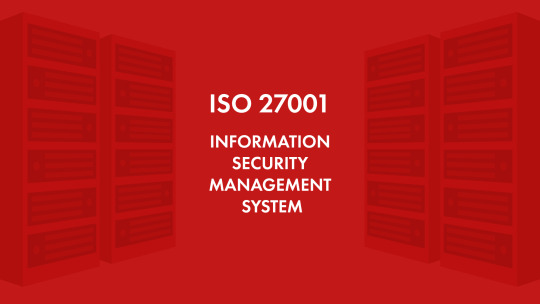#ISO 27001 Certification
Text

Sat-Gun-Sang Meet (181th Virtual Webinar)
Topic: " International Organization for Standardization (Know your ISO Standards) "
Date: 18th May-2024
Time: 11:00 am to 12:30 pm
Speaker: Dr. Raina Khatri Tandon
Registration Link: https://lnkd.in/ewWadfzQ
Join Zoom Meeting: https://us06web.zoom.us/j/87193821666?pwd=b2EhokTVjQB0KgF8aoYCOOvQQ66oVe.1
Meeting ID: 871 9382 1666
Password: 905944
Sat-Gun-Sang Meet (181th Virtual Webinar)
0 notes
Text
May this International Labour Day bring you renewed energy and motivation to pursue your goals with passion and dedication.
Happy Labour Day!!
http://qcertifyglobal.nl

#maydaywishes #LabourDay2024 #LabourDay #isocertification #iso9001 #iso27001
#iso certified company#iso certificate online#iso certification#iso 45001#iso 9001#iso 27001 certification#iso 27001 audit#iso 27001 training#iso 27001 consultants#iso 27001 implementation in uae#iso certification bangalore#iso certification in iraq#iso certification in egypt
0 notes
Text
Unlocking Data Security: ISO 27001 Certification

In today’s digital age, safeguarding sensitive information is paramount for businesses to maintain trust and integrity. ISO 27001 Certification is the gold standard for information security management systems (ISMS), ensuring organizations have robust measures in place to protect their data assets. At 4C Consulting Private Limited, a leading ISO Certification Consulting company, we recognize the critical importance of ISO 27001 Certification in safeguarding organizational data. With our extensive experience in implementing ISO Standards across diverse industries, we offer tailored solutions to help businesses achieve ISO 27001 Certification seamlessly.
ISO 27001 Certification signifies an organization’s commitment to maintaining the confidentiality, integrity, and availability of information assets. By implementing comprehensive risk management processes, access controls, and security protocols, businesses can mitigate the risks of data breaches, cyber threats, and unauthorized access. ISO 27001 Certification not only enhances data security but also demonstrates compliance with regulatory requirements, instilling confidence among stakeholders and customers.
Benefits of ISO 27001 Certification extend beyond data protection to include improved operational efficiency, enhanced reputation, and increased business opportunities. With ISO 27001 Certification, organizations can streamline their processes, reduce security incidents, and demonstrate their commitment to excellence in information security management. Moreover, ISO 27001 Certification provides a competitive edge in the marketplace, opening doors to new partnerships and contracts.
At 4C Consulting, we provide end-to-end support in achieving ISO 27001 Certification, from initial assessment to implementation and audit readiness. Our team of expert consultants offers tailored solutions to address the unique security needs of each organization, ensuring compliance with ISO 27001 requirements. With our proven track record and industry expertise, we empower businesses to strengthen their cybersecurity posture and safeguard their valuable data assets. Partner with us today to embark on the journey towards ISO 27001 Certification and secure your organization's future. Contact us for more information.
0 notes
Text
Unlocking Security Excellence: Master ISO 27001 Compliance with Our Best Practices Guide!
#ISO 27001#iso 27001 consultants#iso 27001 certification#ISO 27001 Compliance#CloudFountain#ComplianceExcellence
0 notes
Text

راههای کنترل و مدیریت عملکرد مشاور ایزو
برای اطمینان از اینکه مشاور ایزو خدمات باکیفیتی ارائه میدهد و به بهترین نحو به نیازهای سازمان شما پاسخ میدهد، میتوانید اقدامات زیر را انجام دهید:
قبل از انتخاب مشاور:
سابقه و تجربه را بررسی کنید: به دنبال مشاورانی باشید که سابقه اثبات شده ای در کمک به سازمان های مشابه شما در پیاده سازی و استقرار سیستم های مدیریتی ایزو داشته باشند.
صلاحیت ها را تأیید کنید: مطمئن شوید که مشاوران دارای مدارک و گواهینامه های مرتبط هستند و در زمینه های تخصصی مورد نیاز شما تخصص دارند.
مراجع را بررسی کنید: از مشتریان قبلی مشاور در مورد تجربیات آنها سوال کنید.
در طول پروژه:
ارتباطات شفاف را حفظ کنید: انتظارات خود را به وضوح با مشاور بیان کنید و به طور منظم در مورد پیشرفت پروژه با آنها ارتباط برقرار کنید.
نظارت بر پیشرفت: به طور فعال در پروژه شرکت کنید و به طور منظم پیشرفت را رصد کنید.
بازخورد ارائه دهید: به طور منظم به مشاور بازخورد در مورد عملکرد آنها ارائه دهید.
مدیریت ریسک: با مشاور برای شناسایی و مدیریت هرگونه ریسک بالقوه ای که ممکن است بر پروژه تأثیر بگذارد، همکاری کنید.
پس از اتمام پروژه:
یک ممیزی نهایی انجام دهید: یک ممیزی نهایی برای اطمینان از اینکه سیستم های مدیریتی ایزو به درستی پیاده سازی شده و استقرار یافته اند انجام دهید.
از پشتیبانی مداوم اطمینان حاصل کنید: از مشاور در مورد اینکه چه حمایتی پس از اتمام پروژه ارائه می دهد، سوال کنید.
نکات اضافی:
یک قرارداد کتبی منعقد کنید: قبل از شروع کار با مشاور، یک قرارداد کتبی که دامنه کار، جدول زمانی، هزینه ها و سایر شرایط را مشخص می کند، منعقد کنید.
یک مدیر پروژه تعیین کنید: یک مدیر پروژه در داخل سازمان خود تعیین کنید که مسئول نظارت بر پروژه و اطمینان از پیشرفت آن طبق برنامه باشد.
با پیروی از این دستورالعمل ها، می توانید به طور موثر بر مشاور ایزو خود نظارت داشته باشید و اطمینان حاصل کنید که پروژه پیاده سازی ایزو شما با موفقیت تکمیل می شود.
برای مشاوره رایگان در رابطه با استقرار سیستم های مدیریتی بین المللی ایزو با شرکت مشاوره بین المللی مهندسی هیوا تماس بگیرید:
https://hivainco.com/
#iso9001#iso45001#iso14001#iso27001#iso 27001 consultants#iso 27001 implementation in uae#iso 27001 training#iso 27001 certification#iso 27001 audit
0 notes
Text
Want to learn more about ISO 27001 certification benefits? You can learn about the advantages information security management brings to you. To read more visit https://www.quality-assurance.com/blog/which-iso-27001-certification-benefits-augment-business-sustainability.html
0 notes
Text
Why Should You Choose ISO 27001 Certification in Security Management of the Banking Sectors in UAE?

ISO 27001 Certification is an Information Security Management System(ISMS) certificate that helps organizations manage security controls of the core insights. It is the only auditable standard provided by ISO to have control over the risk management issues of organizations.
Importance of Information Security Management Systems in Banking Sectors
Cyber Crimes are the new trend of threats that is constantly growing its circle. Where organizations are worried because of such difficult and required management of cyber risks, ISO 27001 Certification comes with the whole package of maintaining cyber-security with ISMS.
ISO/IEC 27001 Certification is the most well-recognized standard for Information Security Management System(ISMS). ISO 27001 is responsible for establishing, executing, and maintaining improvements to the ISMS.
An information Security Management System(ISMS) is a credible approach for managing data and insights and also protecting it from the boundaries of any unauthorized or harmful sources. It proactively works to reduce potential Cyber risks and build resilience against cyber threats. It ensures the long-term growth of the organizations and enhances stability and profitability chances within the different financial sectors.
ISO 27001:2022 in Financial Security Management
The ISO 27001 standard deals with information security, operation control, access control, human resource security, communication security, and information security management systems.
For stronger financial management, the security of the data and policies are very essential to be private. ISO 27001:2022 has a powerful impact on security management and the effectiveness of protecting the data of the banking sectors in the UAE. The current version of ISO 27001 comparatively impacts in
Cybersecurity
Protection of private data and insights
Information Security
Risk assessment and treatment
Access controlling system
Advantages of ISO 27001 Certification in the Banking Sector
The significance of ISO 27001:2022 Certification in the financial and banking sectors lies in its systematic framework for managing the security risks of information and ensuring compliance with the policies and regulations. The key benefits of ISO 27001 in managing finances are:
Detecting Cyber Risks: Cyber risks are one of the prioritized subjects of ISO 27001: 2022. The 27001 certification plays a significant role in assessing the cyber risks according to the need and requirements to p[provide the utmost security to the cyber side of the data and insights.
Preventing Cyber Threats: The risk-assessing approach of the ISO 27001 Certificate allows the banking authorities to identify the weaknesses and security leak potentials to look after and establish a robust controlling system to prevent cyber threats.
Enhancing Compliance: For banking sectors compliance is very important to be trust able for the clients to obtain more engagements of the finances. ISO 27001 Certification enhances the structure of the bank's security by required frameworks and strategic operations and serves as a mark of trust for the customers or stakeholders of the finances.
Cyber Threat Resilience: Banks are prime targets for cyberattacks due to the valuable data they possess and the financial incentives for attackers. ISO 27001 helps banks strengthen their cyber resilience by implementing best practices in areas such as access control, encryption, incident response, and business continuity planning.
Competitive Advantage: ISO 27001 certification can provide a competitive advantage for banks by differentiating them from competitors and demonstrating their commitment to security and risk management. It can be a deciding factor for customers when choosing a bank or financial institution for their services.
Third-Party Assurance: ISO 27001 certification provides assurance to stakeholders, including customers, partners, and regulators, that the bank has implemented adequate controls and measures to protect their information assets. It facilitates trust-based relationships with third parties involved in the banking ecosystem.
Conclusion
ISO 27001 certification is instrumental in helping banks mitigate information security risks, comply with regulations, build customer trust, and maintain a competitive edge in the dynamic and highly regulated banking sector. With cyber crime on the rise and new threats constantly emerging, it can seem difficult or even impossible to manage cyber risks. ISO 27001 helps organizations become risk-aware and proactively identify and address weaknesses.
ISO 27001 promotes a holistic approach to information security: vetting people, policies, and technology. An information security management system implemented according to this standard is a tool for risk management, cyber-resilience, and operational excellence.
#ISO 27001 Certification#ISO 27001 Certification Cost#ISO 27001 Standard In UAE#ISO 27001 Implementation In UAE
0 notes
Text
Incident response management for information security is necessary for companies especially when the data are sensitive. Read how the ISO 27001 can help. https://quality-assurance.com.au/blog/ten-ways-the-iso-27001-accreditation-helps-with-incident-management-response/
0 notes
Text
Achieve Data Security Excellence: ISO 27001 Certification with 4C Consulting

In today's digital age, protecting sensitive information and ensuring data security is paramount for businesses of all sizes. ISO 27001 Certification serves as a globally recognized standard for establishing, implementing, maintaining, and continuously improving an Information Security Management System (ISMS). At 4C Consulting Private Limited, a trusted ISO Certification Consulting company, we specialize in helping organizations achieve ISO 27001 Certification to safeguard their data assets.
ISO 27001 Certification demonstrates an organization's commitment to managing and protecting information assets effectively. By implementing ISO 27001 standards, businesses can identify potential security risks, implement controls to mitigate these risks, and establish a framework for managing and monitoring information security processes. Achieving ISO 27001 Certification not only enhances data security but also instills confidence in customers, partners, and stakeholders regarding the organization's commitment to protecting sensitive information.
At 4C Consulting, we understand the importance of data security in today's interconnected world. With our expertise and experience, we guide organizations through the ISO 27001 Certification process, from initial assessment to implementation and certification. Our tailored approach ensures that organizations can effectively address their unique security challenges and achieve compliance with ISO 27001 standards. Partner with us to strengthen your data security posture and demonstrate your commitment to protecting valuable information assets through ISO 27001 Certification. Contact us for more information.
0 notes
Text
iso 27001 certification
Understanding ISO 27001 Certification: A Comprehensive Guide
Introduction:
In today's digital age, the protection of sensitive information is paramount for organizations across various sectors. Cyber threats loom large, and data breaches can have severe consequences ranging from financial losses to damage to reputation. To combat these risks, many companies opt for ISO 27001 certification, a globally recognized standard for information security management systems (ISMS). This article aims to delve into the intricacies of ISO 27001 certification, its significance, implementation process, benefits, and challenges.
Significance of ISO 27001 Certification
ISO 27001 certification is not merely a badge of honor but a strategic approach towards safeguarding valuable information assets. By adhering to this standard, organizations demonstrate their commitment to protecting confidential data, mitigating risks, and ensuring the integrity, confidentiality, and availability of information. Moreover, ISO 27001 certification enhances credibility and trust among stakeholders, including clients, partners, and regulatory bodies. It serves as a competitive differentiator, giving certified organizations a distinct advantage in the marketplace. Furthermore, compliance with ISO 27001 helps organizations comply with legal and regulatory requirements related to data protection and privacy, such as GDPR, HIPAA, and CCPA.
Implementation Process of ISO 27001
Implementing ISO 27001 involves a systematic approach tailored to the unique needs and context of each organization. The process typically begins with establishing a clear scope and objectives for the ISMS. This entails identifying information assets, assessing risks, and defining policies and procedures to address security vulnerabilities. Next, organizations develop a comprehensive set of controls based on the ISO 27001 framework, encompassing areas such as access control, cryptography, incident management, and business continuity. Implementing these controls often requires a collaborative effort involving various stakeholders across the organization, including top management, IT personnel, and employees at all levels.
Central to the implementation process is conducting a series of risk assessments to identify, evaluate, and prioritize potential threats and vulnerabilities. This enables organizations to allocate resources effectively and implement appropriate safeguards to mitigate risks. Additionally, organizations must establish a robust monitoring and measurement system to ensure the ongoing effectiveness of their ISMS. Regular internal audits and management reviews are essential to identify areas for improvement and maintain compliance with ISO 27001 requirements. Finally, organizations undergo a formal certification audit conducted by an accredited certification body to validate the effectiveness of their ISMS and obtain ISO 27001 certification.
Benefits of ISO 27001 Certification
ISO 27001 certification offers a myriad of benefits to organizations seeking to bolster their information security posture. Firstly, it provides a structured framework for managing information security risks, thereby reducing the likelihood of data breaches and associated financial losses. Moreover, ISO 27001 certification enhances organizational resilience by fostering a culture of continuous improvement and proactive risk management. It also instills confidence among stakeholders, including customers, partners, and regulatory authorities, by demonstrating a commitment to information security best practices.
Furthermore, ISO 27001 certification opens up new business opportunities by enabling organizations to bid for contracts that mandate compliance with stringent security standards. It also helps organizations streamline their internal processes, leading to increased efficiency and cost savings. Additionally, ISO 27001 certification can serve as a powerful marketing tool, enhancing brand reputation and competitiveness in the marketplace. Ultimately, the adoption of ISO 27001 contributes to a safer and more secure digital ecosystem, benefiting not only individual organizations but society as a whole.
Challenges and Considerations
While ISO 27001 certification offers numerous benefits, it is not without its challenges and considerations. One of the primary challenges organizations face is the complexity of the implementation process, which requires substantial time, resources, and expertise. Achieving compliance with ISO 27001 may involve cultural and organizational changes, as well as overcoming resistance from employees accustomed to traditional ways of working.
Moreover, maintaining ISO 27001 certification requires ongoing commitment and investment in terms of training, technology, and compliance activities. Organizations must stay abreast of evolving threats and regulatory requirements to ensure the continued effectiveness of their ISMS. Additionally, achieving buy-in from senior management and securing adequate budgetary support can be hurdles in the certification journey.
Furthermore, organizations operating in highly regulated industries or handling sensitive data face additional scrutiny and compliance requirements, adding complexity to the certification process. Navigating these regulatory nuances while aligning with ISO 27001 standards can pose significant challenges for such organizations.
Despite these challenges, the benefits of ISO 27001 certification far outweigh the obstacles. With proper planning, dedication, and support, organizations can successfully implement and maintain an effective ISMS, thereby safeguarding their information assets and enhancing their overall resilience to cyber threats.
Conclusion:
In conclusion, ISO 27001 certification is a valuable tool for organizations looking to fortify their information security defenses and demonstrate their commitment to protecting sensitive data. By adhering to ISO 27001 standards, organizations can mitigate risks, enhance credibility, and unlock new business opportunities. While the certification process may present challenges, the long-term benefits make it a worthwhile investment in today's digital landscape. Ultimately, ISO 27001 certification is not just a destination but a journey towards building a more secure and resilient organization.
0 notes
Text
ISO 27001 Documentation Excellence: Key Steps Towards Securing Information in Any Organization
Information security is paramount in today's digital age. Organizations hold a wealth of sensitive data and need a strong strategy to protect it. ISO 27001, the international standard for information security management systems (ISMS), provides a framework for achieving this goal. However, the effectiveness of an ISMS depends on well-crafted documentation. This article explores key steps towards achieving ISO 27001 documentation excellence, paving the way for a secure future.
ISO 27001 doesn't mandate a specific set of documents. Instead, it outlines the need for documented information necessary to support the ISMS and demonstrate its effectiveness during audits. This flexibility allows organizations to tailor their documentation to their unique needs and size.
However, some core documents are generally considered essential for an ISO 27001-compliant ISMS:
• Information Security Policy: This high-level document outlines the organization's commitment to information security and provides the overall direction for the ISMS.
• Scope of the ISMS: Clearly defines the boundaries of the ISMS, specifying which information assets and processes are included.
• Risk Assessment and Treatment Plan: Identifies potential information security risks, assesses their likelihood and impact, and outlines controls to mitigate them.
• Statement of Applicability (SoA): Select relevant security controls from ISO's Annex A, explaining how they are implemented or why they are not applicable.
• Procedures: Provide detailed instructions for carrying out specific ISMS activities, such as incident response or access control.
While meeting the basic requirements is crucial, true excellence in ISO 27001 documentation goes beyond a checklist. Here are key steps to achieve it:
• Accessibility and Availability: Documents need to be readily accessible to all authorized personnel, fostering a culture of information security awareness and compliance.
• Version Control and Consistency: Implement a robust version control system to ensure everyone is working with the latest versions and maintain consistency across documents.
• Regular Review and Update: The ISMS and its documentation are living documents. Regularly review and update them to reflect changes in the organization's information security posture, threats, and regulatory landscape.
• User-Friendly Format: Consider utilizing user-friendly formats, flowcharts, and diagrams to enhance understanding and user adoption.
• Integration with Existing Systems: Integrate ISMS documentation with existing document management systems or intranet platforms for easy access and searchability.
Investing in ISO 27001 documentation excellence yields numerous benefits:
• Streamlined Audits: Clear and well-organized documentation facilitates smoother and less time-consuming audits.
• Enhanced Staff Awareness: Readily accessible documentation empowers employees to understand their roles and responsibilities in maintaining information security.
• Improved Decision-Making: Comprehensive documentation provides a clear reference point for making informed decisions related to information security.
• Reduced Risk of Errors: Consistent and up-to-date documentation minimizes the risk of confusion and errors in implementing security controls.
• Stronger Security Culture: A focus on documentation excellence fosters a culture of information security awareness and ownership within the organization.
Conclusion:
Achieving ISO 27001 documentation excellence is an ongoing process. By following these key steps, organizations can build a robust and user-friendly documentation system that supports their ISMS and strengthens their overall information security posture. Remember, excellent documentation is a valuable asset, empowering your organization to navigate the ever-evolving threat landscape and secure a future of information security success.
0 notes
Text

#iso 22000 certification#iso 27001 certification#iso 9001#iso chennai#iso 22000#isocertification#business#iso9001#iso90012015
0 notes
Text
Cubit is ISO 27001:2022 ISMS certified
Cubit has achieved ISO 27001:2022 ISMS standard certification. Although ISO 27001:2022 accreditation is a major step for Cubit, the pursuit of information security excellence is a continuous process. We are committed to maintaining a culture of security awareness throughout the whole organization, remaining up to date on emerging risks and technology developments, and continually enhancing its ISMS. Cubit is positioned for success in a world that is becoming more digitally connected and proactive by continuing to take an agile and proactive approach to information security.
In this digital and technological era information is a valuable asset for every business and ensuring its security is paramount. With the technology enhancement, cyber threats are evolving rapidly. Every business must fortify their defenses to safeguard sensitive data as security has become a critical priority for businesses across industries. Businesses strive for excellence in every facet of their operations, so being ISO certified is also crucial in this competitive business.
#it#iso certification#iso 27001 certification#kathmandu#nepal#it services#technology#cubit#cubit incorporated
0 notes
Text
Data security has grown in importance in the modern digital era, impacting both individuals and organizations. It is critical to have strong procedures in place to guarantee the privacy and security of this information, given the growing dependence on technology and the massive volumes of data being collected. Privacy Information Management Systems (PIMS) are useful in this situation. To handle and secure personal data by applicable regulations, such as the ISO 27001 Certification, a PIMS is put in place.
0 notes
